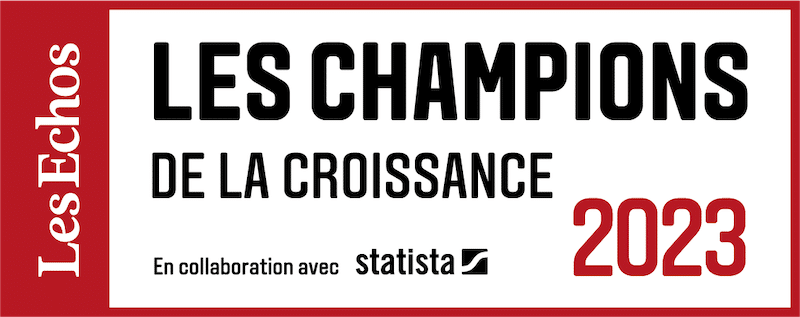Feedback from the city of Nîmes on Microsoft solutions for field agents
20/01/2021
8min
Tables des matières
The city of Nîmes has deployed various Microsoft solutions to optimize different processes and offer a better level of inclusion to the local authority's field agents. Marjorie Fernandes, Head of Collaborative Uses, Jean-Michel Gautier, Head of Projects and Uses (Education Department of Nîmes City Hall), and Anne-Sylvie Charmasson, Head of Catering & Cleaning, shared their experience during a webinar dedicated to local authorities(available in replay). Here are the highlights of their testimony...
Implementation of a digital identity for field agents by the city of Nîmes
The city of Nîmes first gave a digital identity to the field agents. Marjorie Fernandes explained how the community proceeded in these terms: "For the digital identity, it was done in 2 steps. First, we did a major overhaul of our Active Directory. Indeed, it was seen as a means of authentication, but did not contain elements such as the name of the hierarchical superior or the management. However, these elements automatically feed the Office 365 profiles and allow for personalized workflows. My colleague Etienne led this project by setting up automations so that the HR or telephony software would feed the AD. Thus, all the profiles have been completed.
Next, 1,500 field employees were provided with Office 365 licenses and a digital identity using email. This gave them access to an email box, which facilitates communication. They also use it to log in to the intranet. In doing so, they get the same level of information and inclusion as other employees.
It should be noted that the support was not neutral. We had to start by sending them a paper letter, with the support of the IT Department and the Communications Department, to give them access to their identifiers. As far as hardware is concerned, we decided to let them connect from their personal peripherals. We didn't have the option of providing them with any, but in any case, with Office 365, the connection is secure. "
Deployment of a Powell 365 intranet for better access to information
The Head of Collaborative Uses then spoke about the community's intranet. "We set up an intranet (which we call "Digital Workplace") by choosing Powell 365 instead of SharePoint. Indeed, we wanted a "CMS" varnish , more practical to manage than SharePoint. We integrated internal communication, profiles, automatic directories and direct link to Teams. Any employee can publish news directly using a template. This offers more collaboration and allows field agents to share information on certain interventions, by sharing photos for example.
What makes it a "Digital Workplace" is the fact that thanks to the AD structure, one can find a lot of information (shared documents, teams in Teams...) about the person by clicking on his profile from the Powell 365 intranet. Before this portal, employees had Teams on one side, SharePoint on the other. Now they have their entire desktop on the intranet and the link to the community's applications."
Use of Microsoft Teams by the city of Nîmes to optimize collaboration
Marjorie Fernandes spoke about the context of the Microsoft Teams deployment: "We started the implementation of Microsoft Teams almost 3 years ago. We accompanied each department, one after the other, through workshops. The first one to switch to Teams was the education department. This department was in the midst of a restructuring process, which gave us the opportunity to think about how to improve communication and develop collaboration. The arrival of the COVID (and therefore of telework) accelerated things, especially with the somewhat reluctant departments. We had accompanied enough employees that telecommuting with Teams went very well. Teams has become a central tool for the community today.
Jean-Michel Gautier, a member of the Education Department of Nîmes City Council, quickly became interested in the Teams solution. Here is the approach he took to implement the Microsoft hub: "My first experience was to implement Teams with the teams in charge of the maintenance of the city of Nîmes' assets. I proceeded in stages. I started by getting people to use the tool, then I gave them a deadline. I then switched all the documents from SharePoint to Teams.
Support is important. You have to be there for your employees. The implementation of Teams required a lot of support, but the time I lost, I recovered afterwards. My employees are now able to use the tool well. No need to look for documents anymore, co-editing is very practical and saves time. It allowed us to accelerate the dematerialization of all our documents. Today, with the team, I am paperless in my practices.
We deployed Teams in the same way at the Department of Education. We share information on school issues. I also work with external companies in Teams. With private channels, we can streamline teams. A private channel creates a private SharePoint, which helps protect confidential documents.
Teams is a collaborative tool, the information is available in real time. It gives the manager a global vision and brings transversality. I use it on a daily basis, it's the only thing I use anymore. I also use it with a tablet and our referents use it from their personal smartphones. This has allowed us to stay connected during containment and prepare for deconfinement."
Power Apps created to help monitor school cleaning
Anne-Sylvie Charmasson, Food Service & Cleaning Manager, also shared how her department has optimized processes with Microsoft solutions. "Our department includes 2 field agents who control the cleaning of 83 schools in the city. This is managed by 5 different companies. Before, the field agents had to take with them the contracts, the visit sheets, the control sheets. Then they had to take pictures of the results of the services, go back to the office, write reports and then organize meetings with the companies.
To remove all that paperwork, we provided them with tablets and a Power App s app for tracking. They were hooked right away. This new system allows us to compare visits, to have a listing, to know where the visits are. We communicate much more easily. This system saves time, as well as enhancing the value of the agents' job and their skills. They have already come up with a lot of other ideas to continue optimizing the processes. It's a very, very good tool, and we're very happy with it!
Optimization of the management of school councils thanks to Microsoft solutions in Nîmes
The Collaborative Uses Manager also explained how the community plans to optimize communication related to school councils. "Each school holds a council meeting with elected officials, the school principal, parents, etc. Some of the questions asked during these meetings require the intervention of our departments (building, education, roads, etc.). Some of the questions asked during these councils require the intervention of our departments (building, education, roads, etc.). Until now, these questions were managed in Word, then in Excel. The directorate of education was responsible for reading them, dispatching the questions and answering them.
To optimize the process, we created an application with custom SharePoint lists, Power Apps and Flow. The idea is to enter questions into the application directly during the meeting. The questions are attached to the school council concerned and go to the elected official who sat on the meeting. He reads them again and validates them. Thanks to a "workflow", it is sent to the business management. The latter can provide a response. The elected officials have a real-time view of what is going on. They can therefore prepare the council more efficiently. We will deploy this system as soon as the boards resume, giving access to school principals, elected officials and business units. Eventually, the idea is to open it up to parents so they can access the information in a transparent way."
Feedback from the city of Nîmes on Microsoft solutions for field agents
20/01/2021
8min
Tables des matières
The city of Nîmes has deployed various Microsoft solutions to optimize different processes and offer a better level of inclusion to the local authority's field agents. Marjorie Fernandes, Head of Collaborative Uses, Jean-Michel Gautier, Head of Projects and Uses (Education Department of Nîmes City Hall), and Anne-Sylvie Charmasson, Head of Catering & Cleaning, shared their experience during a webinar dedicated to local authorities(available in replay). Here are the highlights of their testimony...
Implementation of a digital identity for field agents by the city of Nîmes
The city of Nîmes first gave a digital identity to the field agents. Marjorie Fernandes explained how the community proceeded in these terms: "For the digital identity, it was done in 2 steps. First, we did a major overhaul of our Active Directory. Indeed, it was seen as a means of authentication, but did not contain elements such as the name of the hierarchical superior or the management. However, these elements automatically feed the Office 365 profiles and allow for personalized workflows. My colleague Etienne led this project by setting up automations so that the HR or telephony software would feed the AD. Thus, all the profiles have been completed.
Next, 1,500 field employees were provided with Office 365 licenses and a digital identity using email. This gave them access to an email box, which facilitates communication. They also use it to log in to the intranet. In doing so, they get the same level of information and inclusion as other employees.
It should be noted that the support was not neutral. We had to start by sending them a paper letter, with the support of the IT Department and the Communications Department, to give them access to their identifiers. As far as hardware is concerned, we decided to let them connect from their personal peripherals. We didn't have the option of providing them with any, but in any case, with Office 365, the connection is secure. "
Deployment of a Powell 365 intranet for better access to information
The Head of Collaborative Uses then spoke about the community's intranet. "We set up an intranet (which we call "Digital Workplace") by choosing Powell 365 instead of SharePoint. Indeed, we wanted a "CMS" varnish , more practical to manage than SharePoint. We integrated internal communication, profiles, automatic directories and direct link to Teams. Any employee can publish news directly using a template. This offers more collaboration and allows field agents to share information on certain interventions, by sharing photos for example.
What makes it a "Digital Workplace" is the fact that thanks to the AD structure, one can find a lot of information (shared documents, teams in Teams...) about the person by clicking on his profile from the Powell 365 intranet. Before this portal, employees had Teams on one side, SharePoint on the other. Now they have their entire desktop on the intranet and the link to the community's applications."
Use of Microsoft Teams by the city of Nîmes to optimize collaboration
Marjorie Fernandes spoke about the context of the Microsoft Teams deployment: "We started the implementation of Microsoft Teams almost 3 years ago. We accompanied each department, one after the other, through workshops. The first one to switch to Teams was the education department. This department was in the midst of a restructuring process, which gave us the opportunity to think about how to improve communication and develop collaboration. The arrival of the COVID (and therefore of telework) accelerated things, especially with the somewhat reluctant departments. We had accompanied enough employees that telecommuting with Teams went very well. Teams has become a central tool for the community today.
Jean-Michel Gautier, a member of the Education Department of Nîmes City Council, quickly became interested in the Teams solution. Here is the approach he took to implement the Microsoft hub: "My first experience was to implement Teams with the teams in charge of the maintenance of the city of Nîmes' assets. I proceeded in stages. I started by getting people to use the tool, then I gave them a deadline. I then switched all the documents from SharePoint to Teams.
Support is important. You have to be there for your employees. The implementation of Teams required a lot of support, but the time I lost, I recovered afterwards. My employees are now able to use the tool well. No need to look for documents anymore, co-editing is very practical and saves time. It allowed us to accelerate the dematerialization of all our documents. Today, with the team, I am paperless in my practices.
We deployed Teams in the same way at the Department of Education. We share information on school issues. I also work with external companies in Teams. With private channels, we can streamline teams. A private channel creates a private SharePoint, which helps protect confidential documents.
Teams is a collaborative tool, the information is available in real time. It gives the manager a global vision and brings transversality. I use it on a daily basis, it's the only thing I use anymore. I also use it with a tablet and our referents use it from their personal smartphones. This has allowed us to stay connected during containment and prepare for deconfinement."
Power Apps created to help monitor school cleaning
Anne-Sylvie Charmasson, Food Service & Cleaning Manager, also shared how her department has optimized processes with Microsoft solutions. "Our department includes 2 field agents who control the cleaning of 83 schools in the city. This is managed by 5 different companies. Before, the field agents had to take with them the contracts, the visit sheets, the control sheets. Then they had to take pictures of the results of the services, go back to the office, write reports and then organize meetings with the companies.
To remove all that paperwork, we provided them with tablets and a Power App s app for tracking. They were hooked right away. This new system allows us to compare visits, to have a listing, to know where the visits are. We communicate much more easily. This system saves time, as well as enhancing the value of the agents' job and their skills. They have already come up with a lot of other ideas to continue optimizing the processes. It's a very, very good tool, and we're very happy with it!
Optimization of the management of school councils thanks to Microsoft solutions in Nîmes
The Collaborative Uses Manager also explained how the community plans to optimize communication related to school councils. "Each school holds a council meeting with elected officials, the school principal, parents, etc. Some of the questions asked during these meetings require the intervention of our departments (building, education, roads, etc.). Some of the questions asked during these councils require the intervention of our departments (building, education, roads, etc.). Until now, these questions were managed in Word, then in Excel. The directorate of education was responsible for reading them, dispatching the questions and answering them.
To optimize the process, we created an application with custom SharePoint lists, Power Apps and Flow. The idea is to enter questions into the application directly during the meeting. The questions are attached to the school council concerned and go to the elected official who sat on the meeting. He reads them again and validates them. Thanks to a "workflow", it is sent to the business management. The latter can provide a response. The elected officials have a real-time view of what is going on. They can therefore prepare the council more efficiently. We will deploy this system as soon as the boards resume, giving access to school principals, elected officials and business units. Eventually, the idea is to open it up to parents so they can access the information in a transparent way."




